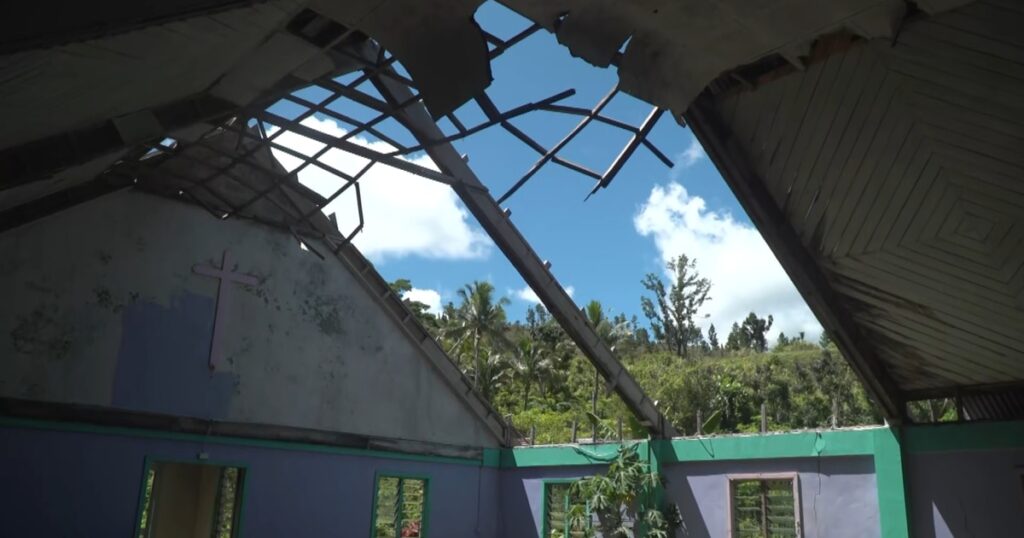In her final year as a nursing student, Suluweti Tabua sits with her family in a tent that’s housed them for nearly two years.
She says one of the most challenging things for her is the lack of privacy and sharing of toilets between the 240 people of Nabavatu. But she says for the children, who have fallen prey to skin diseases, and the elderly, it’s far worse. The heat in the tents, especially in the middle of the day, makes it unbearable for the residents housed here.
“I feel sorry for the elderly in here because some of them they can’t stand the heat, and during this time, the climate change, it’s warming up…we have to go outside and sit under the tree . . and also during the rainy season we are scared because when the strong wind comes, we are scared because the tent is shaking,” she says.
The community was told to move after their village was hit hard by extreme weather patterns, including two cyclones, torrential rainfall and a landslide.
An earthquake around the same time caused huge deep cracks in the ground – one of them splitting the village church in two.
Bonibate Vonuqaqa, the former village headman, says a Government survey team found the village was too dangerous to live in and declared the area a red zone.
“It is very very high risk to live there again, so we move out from there and we were told not to go back and it’s why we are living here now,” he said.
But conditions at the tent village are so dire, with a lack of power and limited water, some residents have made the move back despite the risk.
One of them is village nurse Losavati Sukaciba. She says she got ill living in a tent and has moved back to her home as at least there is water and power.
The Government is trying to find a new location for the village to rebuild on, but there have been delays in the process.
Nabavatu is one of the dozens of Fiji villages affected by climate change and earmarked to be relocated, but the costs are huge. It’s why Pacific countries are hoping that climate negotiators at the COP summit in Egypt will be able to get them a deal which includes a funding package for loss and damage.
Spokesperson for the chief, Esala Tawake, says it’s clear climate change is taking its toll and its been extremely tough on the villagers.
“What can we do? We are sitting here like birds in a nest waiting for food to come – we cannot fly out to find our own food, so we are sitting here as refugees,” he says.
Refugees that want a better life for their children..

